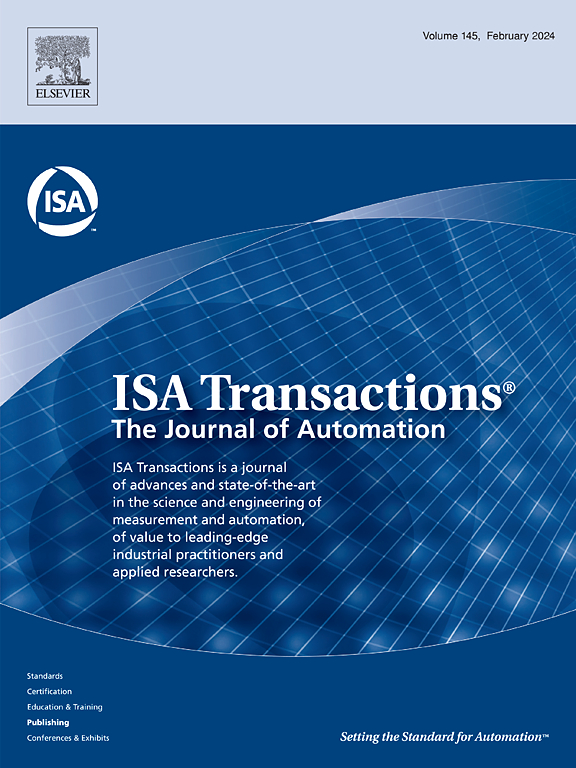具有延迟非对称时变全状态约束的非线性多玩家系统的近似跟踪控制。
IF 6.3
2区 计算机科学
Q1 AUTOMATION & CONTROL SYSTEMS
引用次数: 0
摘要
本文针对具有延迟非对称时变(DATV)全状态约束和未知初始状态的连续时间非线性多玩家系统,提出了一套基于混合零和博弈(MZS)的纳什均衡跟踪控制策略。首先,利用改进的移位变换将初始状态未知的原始约束系统修改为障碍可变换约束系统。然后,在可障碍变换约束系统和预定参考轨迹的基础上,通过应用障碍函数(BF)变换形成无约束增强系统。此外,通过建立与跟踪误差相关的二次成本函数和相应的 HJ 函数,推导出不同博弈者的 MZS 博弈纳什均衡跟踪控制策略。在此基础上,建立了一种纯批判结构,以近似在线计算每个博弈方的控制策略。通过运用 Lyapunov 理论,证明了在 DATV 满状态约束下,神经网络权重和跟踪误差是均匀最终有界的(UUB)。三人非线性系统的仿真实验表明,我们的算法成功地处理了延迟状态约束和未知初始条件,确保系统状态遵循所需的参考轨迹。仿真结果进一步验证了神经网络权重和跟踪误差的统一终极约束性。本文章由计算机程序翻译,如有差异,请以英文原文为准。
Approximate tracking control for nonlinear multi-player systems with deferred asymmetric time-varying full-state constraints
This paper proposes a set of Nash equilibrium tracking control strategies based on mixed zero-sum (MZS) game for the continuous-time nonlinear multi-player systems with deferred asymmetric time-varying (DATV) full-state constraints and unknown initial state. Firstly, an improved shift transformation is used to modify the original constrained system with an unknown initial state into a barrier transformable constrained system. Then, based on the barrier transformable constrained system and predefined reference trajectory, an unconstrained augmented system is formed through the application of the barrier function (BF) transformation. Furthermore, the MZS game Nash equilibrium tracking control strategies are derived by establishing the tracking error related quadratic cost functions and corresponding HJ functions for different players. On this basis, a critic-only structure is established to approximate the control strategy of every player online. By employing Lyapunov theory, it is proven that the neural network weights and tracking error are uniformly ultimately bounded (UUB) within DATV full-state constraints. Simulation experiments of a three-player nonlinear system demonstrate that our algorithm successfully handles deferred state constraints and unknown initial conditions, ensuring that the system states follow the desired reference trajectories. Simulation results further validate the uniform ultimate boundedness of neural network weights and tracking errors.
求助全文
通过发布文献求助,成功后即可免费获取论文全文。
去求助
来源期刊

ISA transactions
工程技术-工程:综合
CiteScore
11.70
自引率
12.30%
发文量
824
审稿时长
4.4 months
期刊介绍:
ISA Transactions serves as a platform for showcasing advancements in measurement and automation, catering to both industrial practitioners and applied researchers. It covers a wide array of topics within measurement, including sensors, signal processing, data analysis, and fault detection, supported by techniques such as artificial intelligence and communication systems. Automation topics encompass control strategies, modelling, system reliability, and maintenance, alongside optimization and human-machine interaction. The journal targets research and development professionals in control systems, process instrumentation, and automation from academia and industry.
 求助内容:
求助内容: 应助结果提醒方式:
应助结果提醒方式:


